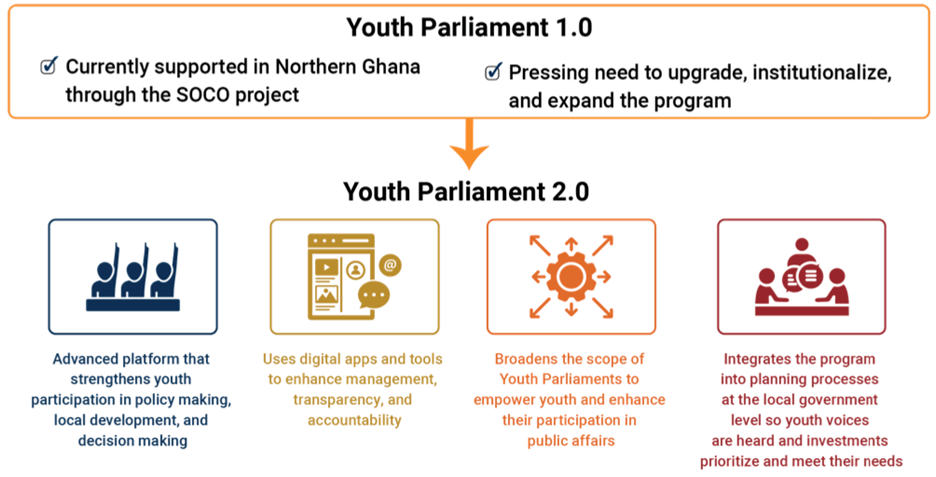Welcome to Youth Parliament 2.0
SOCO project support to Youth Parliaments aims to engender among the youth a sense of inclusion in national and local development in the project’s 48 target districts.
The Youth Parliament 2.0 Concept: What is it, Why is it Needed?
In 2016, the National Youth Authority (NYA) initiated the concept of the National Youth Parliament as a means of institutionalizing and formalizing youth voices and active participation at all levels of government decision making.
The SOCO, under its Youth Engagement and Social Cohesion subcomponent, supports Youth Parliaments in 48 districts in northern Ghana to give youth, including those who are marginalized or at-risk, a platform, voice, and agency to engage in national discourse.
The SOCO project currently supports 32 Youth Parliaments. Several identified opportunities to strengthen the existing Youth Parliament model led the SOCO project to develop the Youth Parliament 2.0 concept. The model aims to catalyze youth participation in policy making, local development, and decision making by fostering active and committed youth participation; better utilizing technology in Parliamentary activities; broadening the scope; and connecting Youth Parliament 2.0 outcomes with local governments and planning processes.
Partners
Youth Parliament 2.0
In its first year of implementation, the SOCO project supported 32 existing Youth Parliaments, including 25 that are still considered active. The project saw an opportunity to strengthen and remodel the existing Youth Parliament program (“Youth Parliament 1.0”) to catalyze youth participation in policy making, local development, and decision making.
The SOCO project identified key enhancement issues and developed a new concept—Youth Parliament 2.0—focused on four intervention areas: strengthening youth participation; using technology; broadening scope; and integration into planning processes.

The Youth Parliament 2.0 concept will be rolled out in two phases. It will first be piloted in 2024 in three SOCO districts and by the end of 2025 will be scaled and institutionalized in the remaining 45 SOCO-supported districts.
